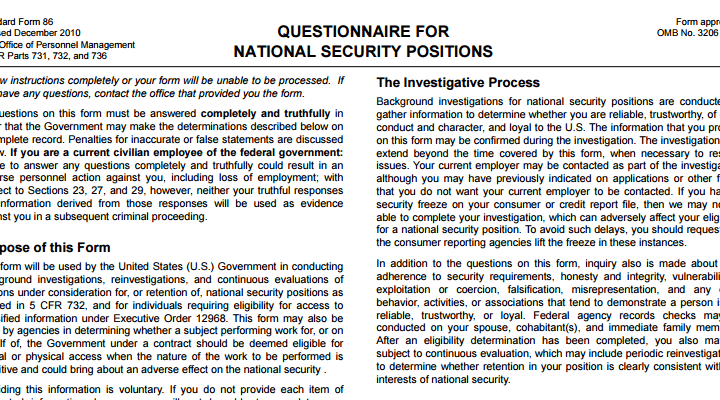A lot of sensitive information goes into your security clearance application – everything from past drug use to that embarrassing arrest in college. Your full security clearance investigation may also include information about your messy divorce and your issues with credit card debt. It makes sense, then, for applicants to wonder – who exactly can access this information once it has been submitted? All security clearance applicants sign a waiver allowing the federal government to seek out information including their criminal and financial histories, as well as contacting the host of references included on the form. But the good news is, the information submitted is used for investigative purposes only – that means it isn’t provided to your new boss, or made publicly available. While the data included on your SF-86, or security clearance questionnaire, may be used in aggregate for analysis – it shouldn’t be associated with your name.
Some applicants also wonder if their references will get to see what they’ve included on the form. The short answer is no – your references won’t see any portion of the SF-86. Any questions they are asked will be directly related to one of the adjudicative criteria, or questions on the SF-86 form. That said, if you listed your drug use in college on the form, you could expect a reference from your college days to get asked about that drug use – so it’s always best to warn your references in advance – and let them know it’s okay to be honest.
You should rest assured that the information you provide on your SF-86 is meant to remain private. Many applicants even struggle to get a copy of their own investigation – you generally need to submit a privacy act request through the appropriate government agency in order to see the completed copy of your investigation. It should include all of the data you provided yourself on the SF-86, as well as any investigation notes that were recorded.




